The cabinet is a collector’s piece. It’s whole façade consists of doors and drawers. This type of furniture came to France at the start of the 17th century under the reign of Henri IV. Craftsmen from Germany and Holland came to Paris and brought with them a technique hitherto unknown in France: the use of veneer on wood furnishings. During the first half of the 17th century, these craftsmen used mainly ebony and and were called “woodworkers in ebony”, which gave rise to the French name of my profession: “ébeniste”. In this gallery, you will discover these exceptional pieces of furniture that I have had the chance to handle and restore.
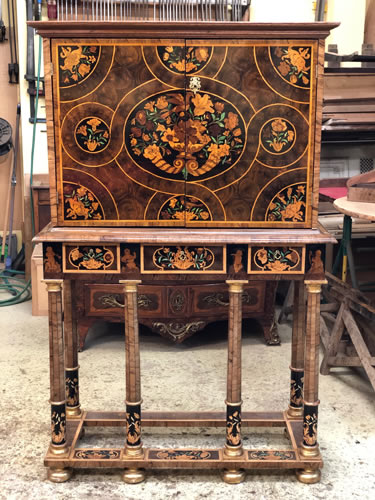
Restoration of an english inlaid cabinet
This is a 17th century English inlaid cabinet with a mainly olive wood veneer. It has inlays with flowers and ...
Read more
Read more
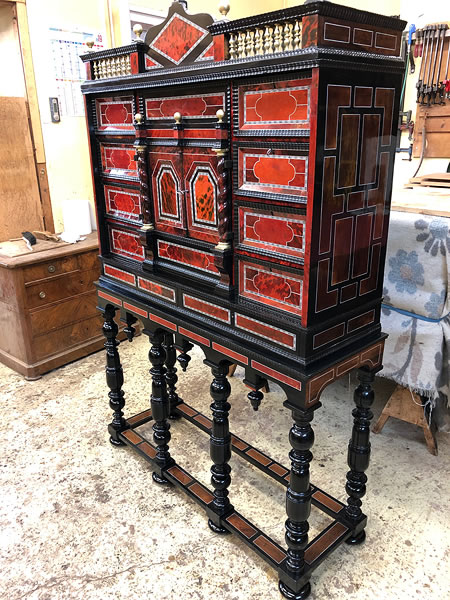
Restoration of a tortoiseshell cabinet
Here is a 17th century tortoiseshell cabinet on a base of blackened wood and framed by moulded drawers with an ...
Read more
Read more
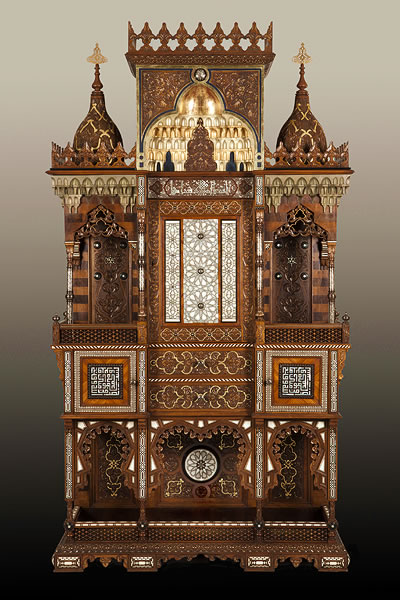
Restoration of an Ottoman furniture
This is a rare piece that belongs more at a prayer altar. Restoring it in it's entirety, apart from the ...
Read more
Read more
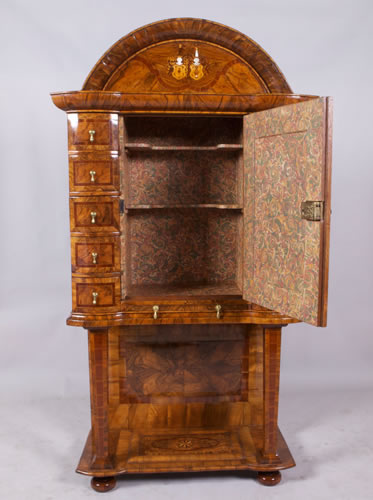
Restoration of an 18th century German cabinet
This is an 18th century German cabinet with a burr walnut marquetry and fillets in Quetsche d'Alsace plum wood. Its ...
Read more
Read more
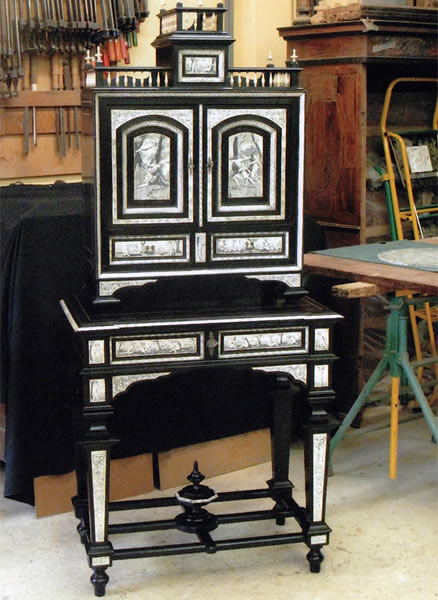
Restoration of a Venetian cabinet in ivory and ebony
Cabinet with engraved ivory on an ebony veneer. This 17th century period piece of Italian Renaissance inspiration is characterised by ...
Read more
Read more
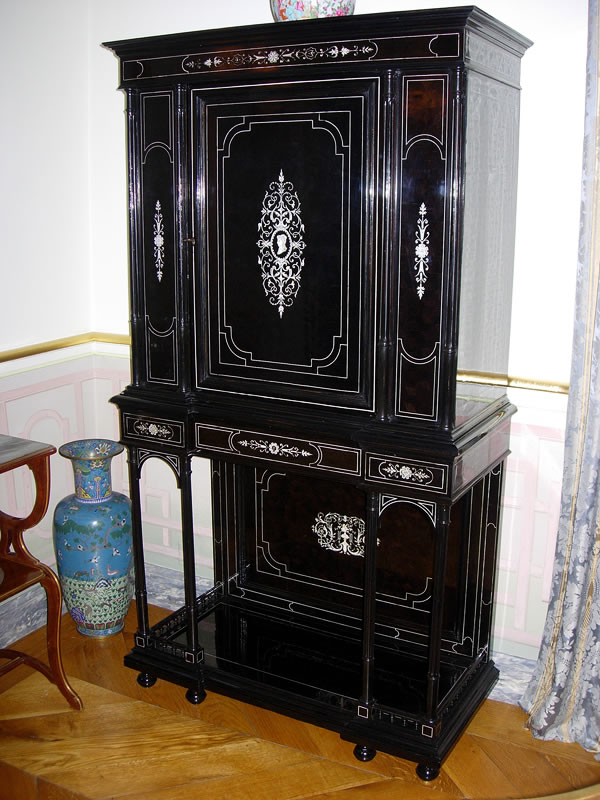
Restoration of a Napoleon III cabinet
Ebony veneer and ivory inlay. Replacement of the fine mouldings that were missing, the ivory incrustations and some of the ...
Read more
Read more
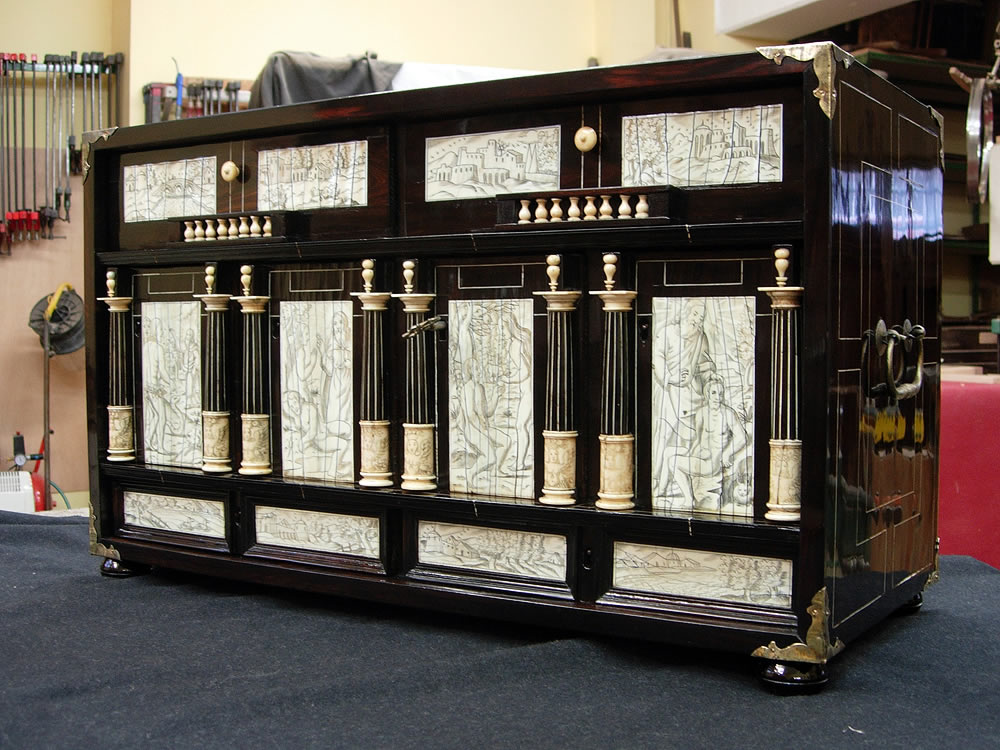
Restoration of a transport cabinet
Restoration of a transport cabinet in ebony veneer. Ivory plate re-engraved. Much of the worked ivory was missing at the ...
Read more
Read more
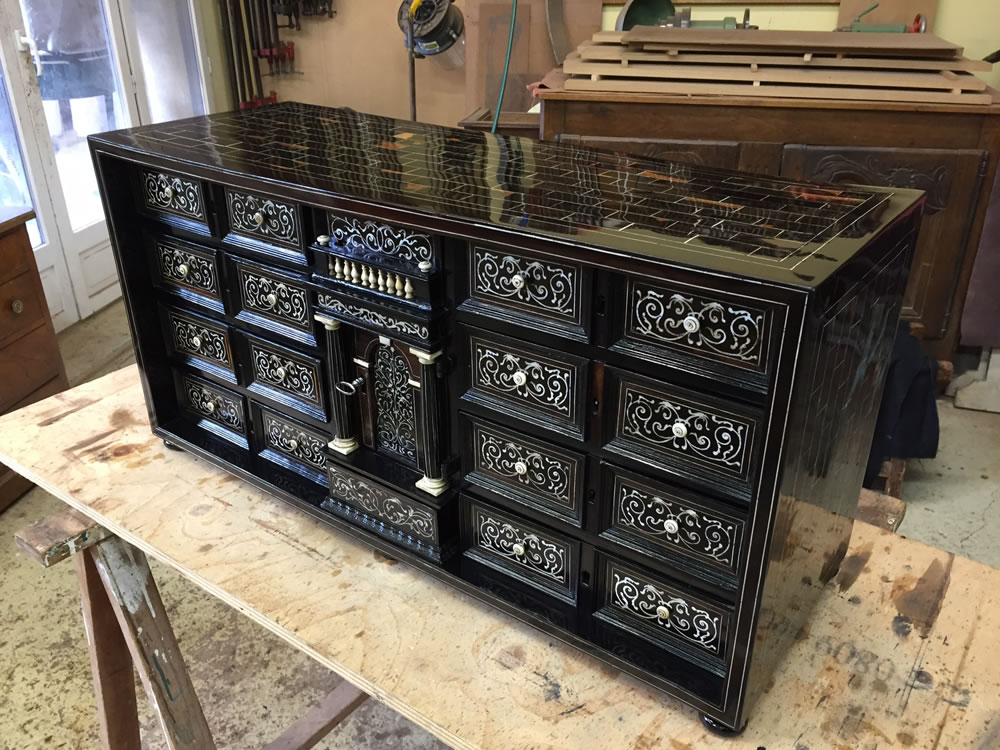
Restoration of a 17th century Italian cabinet
This cabinet presents wood-turned columns and ledges made of bone along with the fillets. Much of the stylized decoration was ...
Read more
Read more
